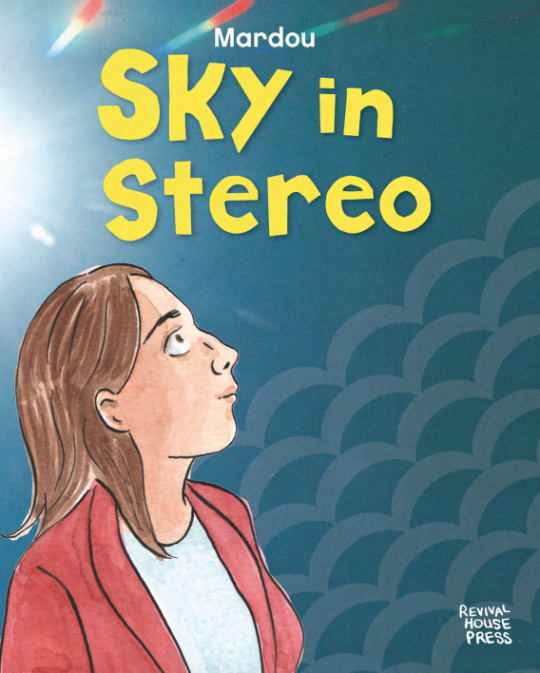
An Interview with Comics Artist Sacha Mardou
Sacha Mardou is a witty and literary comics artist whose work has recently been enjoying some positive attention. She’s also one of my favorite pen-pals. She and I met several years ago through our participation in zine publishing—a worldwide yet fairly teensy community—and we have kept up a lively letter correspondence, and collaborated on a few book projects, since then.
A British transplant to the American midwest, Mardou, who publishes under her last name, has put out self-published mini-comics about indie bands (Manhole #3), secret love affairs (Manhole #4), and Anaïs Nin’s personal life (Anaïs in Paris). Her books are often reminiscent of Adrian Tomine’s work because they are literary enough to function as stories without the art, but they’ve also got this incredible art.
Her comic book series, The Sky in Stereo, might be the most important thing to know about Mardou at the moment. Set in the 90s, it looks, with eyes wide open, at the teenagers who are awkwardly—and sometimes, due to the increasing availability of heroin, dangerously—coming of age in Manchester’s thumping music scene. The series, now in its second issue, was nominated for the Ignatz award for Outstanding Series and named a “notable comic” by editor Scott McCloud in The Best American Comics 2014.
Mardou lives in St. Louis with her husband, the cartoonist Ted May, and their little girl, Veronica. As someone who has a lot of pen-pals, I can tell you: A letter from Mardou—almost always embellished with her expressive drawings—is the best kind of mail to receive.
—Katie Haegele
I. THERE’S A LARGER WORLD OF INDIFFERENCE, BUT SO WHAT?
THE BELIEVER: Recently you told me you’ve noticed a trend: Female comics artists in movies. There’s Phoebe Gloeckner’s graphic novel Diary of a Teenage Girl, which Marielle Heller made into a film, Regina Hall’s character in People, Places, Things, as well as the film you worked on. Is being a lady comics artist cooler than it used to be, or something?
SACHA MARDOU: It’s a thing to be now, a pursuit that it wasn’t when I was twenty-two. I couldn’t explain to my mother then that I seriously wanted to make comics for the rest of my life. You couldn’t go to school to study making graphic novels, so things have come a long way. And Alison Bechdel’s winning that MacArthur genius grant was a huge thing. It’s so great for her, and for comics to be validated like that.
It’s a weird time. The other end of the scale is that Comic Con and stuff are huge now,...
You have reached your article limit
Sign up for a digital subscription and continue reading all new issues, plus our entire archives, for just $1.50/month.
Already a subscriber? Sign in




